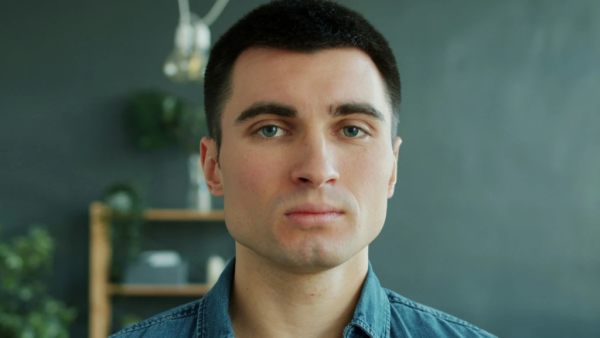
Remember the popular clique in high school? Maybe they were athletes or cheerleaders, or maybe they were just wealthy students with the best clothes and jewelry. Whatever brought them notoriety, they often found themselves in the spotlight, with many classmates wanting to befriend them. But one issue with teenage popularity is that some people never really move past it.
Even if they go on to have success and a stable adult life, they still look back at those teenage years as the highlight reel. According to Professor of Psychology and Neuroscience and Director of Clinical Psychology at the University of North Carolina at Chapel Hill, Dr. Mitch Prinstein, who spoke on the podcast Speaking of Psychology hosted by Kaitlin Luna, there are five traits that people who peaked in high school all seem to share.
Gorgev | Shutterstock
As teenagers, it is normal to want to be cool, popular, and influential, Dr. Prinstein explained. This desire translates into status, which can become an obsession, especially for those who peaked during that time. As they grow into adulthood, they may realize that this passion for popularity can come at a cost.
: There Are 2 Types Of ‘Popular Kids’ In High School, And One Usually Becomes A More Successful Adult
Tied back to the first point, when someone becomes popular, they often want to hold on to that status. This behavior can begin in high school and extend well into adulthood. “We know that there are some people who have really high status,” Dr. Prinstein said. “They are powerful, dominant, and even aggressive.”
Social worker Melody Wilding described people with a dominating personality as having a “controlling, demanding nature” that can be “hard to deal with.” They’re driven by a need to win. That can make them difficult to engage with, from the workplace to social situations. What’s important to remember about dominant personalities is that their demeanor may come off as brusque, but you can’t take it personally.
This is an unfortunate fact, but Dr. Prinstein said that research shows people in high positions of status, like celebrities, company bosses, or government officials, have a greater risk of depression. “It’s kind of an addiction,” he said. “Once you have status or want status, you can never have enough.”
Celebrities often struggle with depression for this very reason. In an interview with W Magazine, Lili Reinhart shared, “I remember looking at my bank account and seeing all of this money that I had saved acting over the course of many years just gone,” recalled Reinhart. “I had so much anxiety booking work, and I spent almost five months holed up in this bedroom in this house just feeling anxious, waiting for my next audition, and not doing anything else. It was the most miserable time of my life.”
: This Backward Rule Is The Secret To Wealth And Popularity, According To Psychology
Research has looked at what happens to kids who were popular in high school as they grow older, Dr. Prinstein said. He explained that the “cool kids” often face a greater risk of addiction, anxiety, and depression. That strong need for status can eventually turn into a negative trait.
A 2014 study noted, “Popular youth may attempt to maintain status through early alcohol use,” and that can translate into addiction down the road. Basically, feelings of insecurity and trying to look cool can drive many young people to engage in risky behaviors that can later develop into destructive habits and addiction.
 NDAB Creativity | Shutterstock
NDAB Creativity | Shutterstock
What happens is that socially popular high school kids may face lower satisfaction in their relationships, Dr. Prinstein said. “And they’re more frequently broken up with,” he added. It’s an intriguing reality, since in high school, they were the ones surrounded by others, but as adults, that pattern often changes.
One important point Dr. Prinstein made clear in the podcast is that there is a difference between status and likability. A person can be popular and hold status because of their looks, for instance, but that does not necessarily mean they are likable. He explained that children who are likable, even as early as kindergarten, experience benefits that can last for decades. Research illustrates they are more likely to earn higher incomes, be happier, and live healthier lives. Dr. Prinstein emphasized the importance of teaching kids to be kind and likable, which helps them avoid chasing status too much.
Peaking in high school is not really a flex. What truly matters is how you treat others. As adults, people might remember the cool kid who was seen as a school celebrity, but that doesn’t mean they actually liked them. Instead, those who were kind and caring, whether they had status or not, became the true popular kids.
: 11 Clear Signs Of A Person Who Peaked In High School
Matt Machado is a writer studying journalism at the University of Central Florida. He covers relationships, psychology, celebrities, pop culture, and human interest topics.